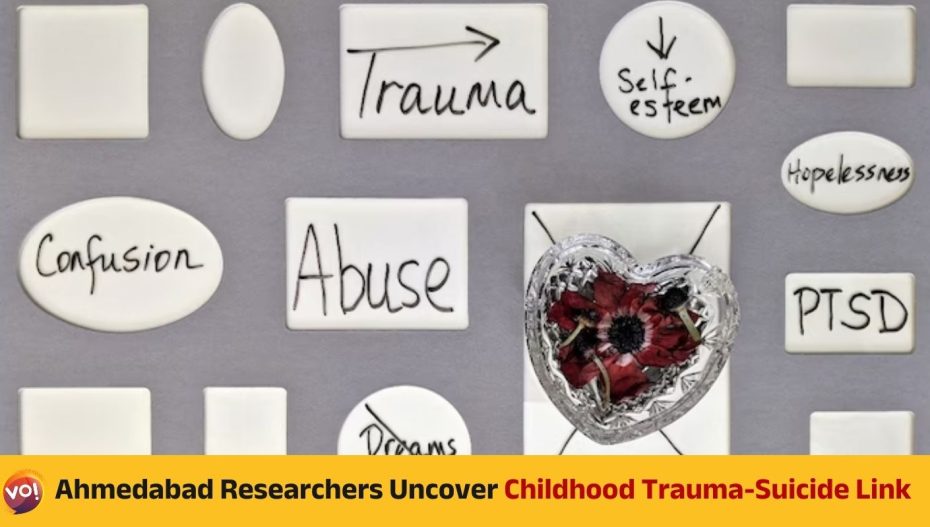In a groundbreaking study conducted by Dr. Gunjan Trivedi and Riri Trivedi of the Society for Energy & Emotions, in collaboration with researchers at IIT Mandi led by Akash Rao, a shocking connection between childhood emotional abuse, emotional neglect, trauma (PTSD), and suicidal behavior has been unveiled. This research sheds light on a critical issue affecting Indian society and underscores the urgent need for mental health interventions.
The study, which is among the first in India to link various components of childhood trauma to trauma and suicidal behavior, aims to understand the role of emotional abuse and emotional neglect in individuals displaying severe trauma symptoms. Published in the European Journal of Trauma and Dissociation, the study on trauma, and the study on suicide behavior presented at the Comsys conference by IIT Mandi, reveal a concerning correlation.
Approximately 80 percent of individuals with a history of suicidal behavior, either through thoughts or actual attempts, have experienced childhood emotional abuse or emotional neglect, according to the studies. This figure rises to 90 percent for those who have endured both emotional abuse and emotional neglect.
This revelation comes at a time when India is grappling with an alarming rise in suicide rates. The data indicates that India’s suicide rate of 15.7 per 1,00,000 people is higher than the Asian average of 12.9 and the global average of 10.6.
Researchers emphasize the significance of their findings, particularly in the context of India’s escalating suicide crisis. Since 2021, there has been a staggering 6-7 percent annual increase in suicide rates in the country. Suicide is now a leading cause of death among Indians aged 15-39, with India’s contribution to global suicide deaths rising significantly.
Dr. Gunjan Trivedi commented on the findings, stating, “Our research has shown that individuals who have experienced emotional abuse have a significantly higher risk of developing high levels of depression or major depressive disorder (MDD). Depression is further linked to functional impairment, complex PTSD, and suicide behavior.”
The researchers, comprising a team of psychotherapists and psychologists at Wellness Space, delved into the lives of hundreds of individuals with a history of childhood trauma. They assessed individuals seeking help for various well-being or mental health issues, conducting follow-up interviews to review adverse childhood experiences between the ages of 3 and 18, including PTSD assessments.
Initially focusing on sexual and physical abuse, the researchers were surprised to discover that emotional trauma, i.e., abuse and neglect, has a more substantial negative impact on anxiety, depression, sleep quality, and overall well-being of adults.
Riri Trivedi, currently pursuing her PhD on the impact of childhood trauma on mental health, emphasized, “Unfortunately, emotional abuse, emotional neglect, and physical abuse often tend to occur together, exacerbating the negative implications on mental health, as our study has highlighted. The findings have a significant impact for parents and caregivers.”
The researchers not only identify risks but also provide practical help to individuals, having successfully assisted hundreds in overcoming anxiety, depression, complex PTSD, and other behavioral issues using Regression Therapy and the evidence-based approach of Reconsolidation of Traumatic Memories (RTM). In addition to their clinical work, they are dedicated educators, teaching hypnotherapy and trauma-informed care-based RTM methodology and inner child integration therapy to psychotherapists and psychologists.












